Mesotherapy in Israel
Search and Compare the Best Clinics and Doctors at the Lowest Prices for Mesotherapy in Israel

Find the best clinics for Mesotherapy in Israel
No pricing info available
Ukraine offers the best prices Worldwide
Price: $ 20
From 126 verified reviews
Y Jilani, 19 September 2020
A huge academic hospital serving the greater jerusalem area, world class health professionals and good location and amenities!
From 122 verified reviews
fadi hreaz, 27 August 2020
Hospital gives reasonable treatment but poor sorting
Tel Aviv Sourasky Medical Center (Ichilov Medical Center), located in Arison New Hospitalization Building, Tel Aviv, Israel offers patients Mesotherapy procedures among its total of 428 available procedures, across 29 different specialties. Currently, there's no pricing information for Mesotherapy procedures at Tel Aviv Sourasky Medical Center (Ichilov Medical Center), as all prices are available on request only. There are many specialists available at the Clinic, with 13 in total, and they are accredited by JCI Accredited
Herzelia Dermatology and Laser Center, located in Ramat Yam St, Herzliya, Israel offers patients Mesotherapy procedures among its total of 30 available procedures, across 2 different specialties. Currently, there's no pricing information for Mesotherapy procedures at Herzelia Dermatology and Laser Center, as all prices are available on request only. All procedures and treatments are undertaken by the lead specialist at the Hospital, and they are accredited by AAD - American Academy of Dermatology
Health Tour, located in Ramat Yam St, Herzliya, Israel offers patients Mesotherapy procedures among its total of 105 available procedures, across 21 different specialties. Currently, there's no pricing information for Mesotherapy procedures at Health Tour, as all prices are available on request only. All procedures and treatments are undertaken by the lead specialist at the Hospital, and they have multiple recognized accreditations, including: Accreditation Programme of Health OrganizationISPS - The Israel Society of Plastic Surgeons
- Home
- Israel
Compare Before & After Photos of _procedure_photos.phpMesotherapy
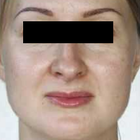
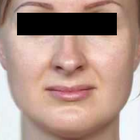
Front view
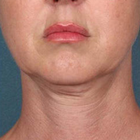
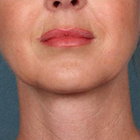
Front view
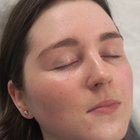
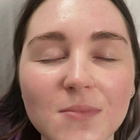
Front view
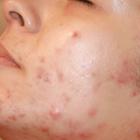
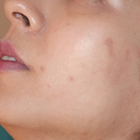
Half-side view
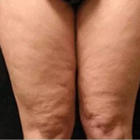
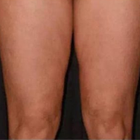
Front view
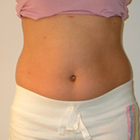
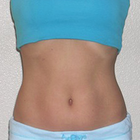
Front view
WHY US?
At Medijump, we're making medical easy. You can search, compare, discuss, and book your medical all in one place. We open the door to the best medical providers worldwide, saving you time and energy along the way, and it's all for FREE, no hidden fees, and no price markups guaranteed. So what are you waiting for?

Free

Best Price

Widest Selection

Risk-Free
What you need to know about Mesotherapy in Israel
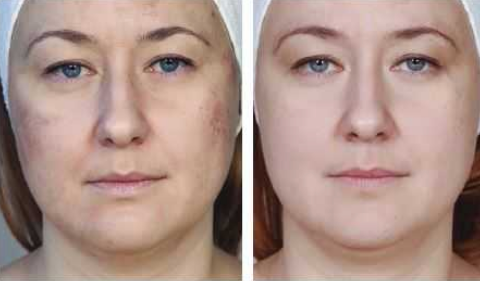
Mesotherapy is a nonsurgical technique that uses micro-injections of vitamins, hormones, enzymes, and plant extracts. Its goal is to rejuvenate and tighten the skin. It is also used to reduce cellulite, lighten pigmented skin, fade wrinkles and line, treat alopecia and encourage hair growth, recontour the body, as well as to remove fat in areas such as the thighs, stomach, buttocks, legs, hips, face, and arms.
Very fine needles are used to deliver a series of injections into the middle layer of the skin. These injections are believed to correct underlying issues, such as inflammation and poor circulation, which cause skin damage.
Before mesotherapy, you may have problems like stubborn fat in certain areas of the body, wrinkles and fine lines in the face, pigmented skin, etc. After the procedure, you’re dull and tired-looking skin will be improved, superficial wrinkles will fade, and excess fat will be reduced. If you undergo the procedure to treat alopecia, you can also expect the procedure to promote hair growth.
What does a Mesotherapy Procedure Involve?
While mesotherapy is nonsurgical and not painful, it can be slightly uncomfortable. Therefore, you may have anesthetic cream applied to your skin to numb the affected area.
Using a special short needle, you will get a series of injections. The injections can be carried out on the face, neck, scalp, chest, hands, and other areas of the body that may have problems you wish to address. There is not a standard formula for the substances injected. The practitioner may use a combination of different substances, including vitamins and minerals, enzymes (such as hyaluronidase and collagenase), herbal extracts, hormones (such as thyroxin and calcitonin), as well as prescription medicines (such as antibiotics and vasodilators). The substances used depends on what you want to treat. For instance, the treatment for cellulite and body fat reduction may use lecithin and isoproterenol.
Each injection can be given at different depths into your skin, ranging between 1 and 4 millimeters, depending on the condition you want to treat. The practitioner may flick their wrist at a rapid pace while injecting, or place the needle into your skin at an angle.
How Long Should I Stay in Israel for a Mesotherapy Procedure?
Mesotherapy is an outpatient procedure, so you can leave the hospital on the same day. You should be able to leave Israel right away, but it is recommended to wait at least a day before you travel home because you need to wait for the substances to settle down. However, since you may need a series of treatment to get the desired results, you should expect to return to the clinic or hospital between 3 to 15 times, with 7 to 14 days intervals. Therefore, the length of stay depends on how many sessions you will need until you achieve the result you wish for.
What's the Recovery Time for Mesotherapy Procedures in Israel?
Mesotherapy has minimal downtime. You may experience a little bruising and swelling after the procedure, but they will subside within 24 hours. Some people are able to return to work and your normal activities on the same day, while others may need to take a day off due to pain and swelling.
What sort of Aftercare is Required for Mesotherapy Procedures in Israel?
No special aftercare is needed, but the practitioner may give you instructions to follow, which may include what you should do to avoid complications and to reduce swelling and bruising. You can have maintenance treatments 1 – 2 times a year.
To maintain the results, particularly if you have mesotherapy to reduce signs of aging and eliminate excess fat, make sure you exercise regularly, follow a well-balanced diet plan, and limit your alcohol intake.
What's the Success Rate of Mesotherapy Procedures in Israel?
While there is proof showing that there can be some improvement after mesotherapy, more studies and research are needed to verify the mechanism, safety, and effectiveness of the procedure. Therefore, you should always choose a licensed practitioner with proven track records and experience if you do want to try the procedure.
According to those who practice mesotherapy, the risks tend to be minimal if you go to an experienced and trained practitioner. The side effects and risks of mesotherapy may include pain, nausea, sensitivity, bumps, swelling, bruising, itching, dark patches of the skin, redness, rash, scars, and infection.
Are there Alternatives to Mesotherapy Procedures in Israel?
The alternative to mesotherapy depends on the condition you want to treat, which may include:
- Injection lipolysis – mesotherapy and injection lipolysis are often thought to be the same procedure, but they are actually two different procedures. Injection lipolysis involves the injection of deoxycholate and phosphatidylcholine into the fat layer under the skin to break up fat.
- Liposuction – is one of the most popular cosmetic treatments to remove excess fat. It uses a suction technique to eliminate fat from specific areas of the body.
- Botox and dermal fillers – both Botox and dermal fillers are nonsurgical treatments to rejuvenate the skin. Botox works by blocking nerve contraction to relax wrinkles, while dermal fillers can improve skin contouring.
Whilst the information presented here has been accurately sourced and verified by a medical professional for its accuracy, it is still advised to consult with your doctor before pursuing a medical treatment at one of the listed medical providers
No Time?
Tell us what you're looking for and we'll reachout to the top clinics all at once
Enquire Now

Popular Procedures in Israel
Prices Start From $85

Prices Start From $167

Prices Start From $120

Prices Start From $931

Prices Start From $76

Prices Start From $5

Prices Start From $236

Recommended Medical Centers in Israel for Mesotherapy

- Interpreter services
- Translation service
- Religious facilities
- Medical records transfer
- Medical travel insurance
- Health insurance coordination
- TV in the room
- Safe in the room
- Phone in the room
- Private rooms for patients available

- Interpreter services
- Translation service
- Religious facilities
- Medical records transfer
- Medical travel insurance
- Health insurance coordination
- TV in the room
- Safe in the room
- Phone in the room
- Private rooms for patients available

- Interpreter services
- Translation service
- Religious facilities
- Medical records transfer
- Medical travel insurance
- Health insurance coordination
- TV in the room
- Safe in the room
- Phone in the room
- Private rooms for patients available

- Interpreter services
- Translation service
- Religious facilities
- Medical records transfer
- Medical travel insurance
- Health insurance coordination
- TV in the room
- Safe in the room
- Phone in the room
- Private rooms for patients available

- Interpreter services
- Translation service
- Religious facilities
- Medical records transfer
- Medical travel insurance
- Health insurance coordination
- TV in the room
- Safe in the room
- Phone in the room
- Private rooms for patients available

- Interpreter services
- Translation service
- Religious facilities
- Medical records transfer
- Medical travel insurance
- Health insurance coordination
- TV in the room
- Safe in the room
- Phone in the room
- Private rooms for patients available

- Interpreter services
- Translation service
- Religious facilities
- Medical records transfer
- Medical travel insurance
- Health insurance coordination
- TV in the room
- Safe in the room
- Phone in the room
- Private rooms for patients available

- Interpreter services
- Translation service
- Religious facilities
- Medical records transfer
- Medical travel insurance
- Health insurance coordination
- TV in the room
- Safe in the room
- Phone in the room
- Private rooms for patients available
Mesotherapy in and around Israel
About Israel
Israel celebrated 70 years of independence in 2018 - in what is a truly ancient land. The world’s only Jewish and democratic state is home to sites sacred to Judaism, Christianity, and Islam. While these holy places are truly unique attractions, there is more to Israel than religious heritage and complex politics. Jerusalem is the official capital and holy city to three world religions, previously mentioned, while Tel Aviv brims with beaches and bustles with urban vitality. Then there’s the Dead Sea and Masada, the stark, stunning Negev, and fertile Galilee. The number of museums and cultural institutions per relative area is larger in Israel than anywhere in the world.
Home to more than 30 JCI accredited facilities, medical tourists visit Israel for a variety of procedures, but particularly dental and tertiary care. Mesotherapy procedures are also a popular choice.
Popular Parts of Israel
Israel is an alluring destination for those who want to appreciate its astonishing religious sites, stunning natural beauty, and remarkable historic relics.
- Tel Aviv is the economic and technological center of Israel, with a population of over 400,000; it is the most populous city in the country. Located on the Mediterranean coastline, the city offers sunny beaches for any sun-chaser. The city has impressive architecture and has a modern cosmopolitan landscape. Tel Aviv Museum of Art houses works by international artists. In addition, it has a nonstop nightlife with a huge party option to fit every taste.
- Haifa is the country’s third-largest city and it is one of Israel’s high-technology centers as well as a busy working port. The city may have an industrious image, but with a number of museums, gardens, and shrines, it is an amazing place to travel to. The Baha’i Gardens are possibly the most popular attraction as it is the final resting place of the prophet-herald of the Baha’i Faith. Tourists can have a bird’s eye view from the platform at the top or take a free Panorama Tour.
- Eilat is located at the southernmost tip of Israel and is the only Israeli city on the Red Sea. Families come to the city to have a good time on the beach and party-goers come for its all-night parties. The turquoise waters invite visitors to snorkel, scuba dive, or swim. It is recommended to stay in an Oasis at night to get a chance to stargaze under a clear desert night sky. During the day, visit the Eilat Mountains to have a beautiful view of an ancient desert.
- Tsfat or Safed is a quaint mountain-top city surrounded by pine forests. Located at an elevation of 900 meters, the city enjoys warm summers and cold winters. It is a popular summer holiday resort frequented by Israelis and foreign visitors. Here, tourists will find synagogues, art galleries, and unique crumbling stone houses.
- Jerusalem is one of the oldest cities in the world and three major Abrahamic religions (Judaism, Islam, and Christianity) considered it a holy city. Even though it has been destroyed and rebuilt over thousands of years, the city manages to endure its spiritual magnetism. It is overflowing with holy sites, diversity, and layers of history.
Weather and Climate in Israel
Israel is a year-round destination but the temperatures in the city vary widely. The coastal areas such as Tel Aviv and Haifa experiences a typical Mediterranean climate where the winters are rainy and the summers are hot. The area around Northern Negev has a semi-arid climate with hot summers and cool winters. The Southern Negev has a desert climate with extremely hot summers and mild winters. On the other hand, mountainous regions have pleasant summer and cold winters with a little snowfall.
Generally, the winter months from November to March are the coldest months in the country. When mountainous areas such as Jerusalem receives snowfall, the coastal areas experience heavy rainfall. Summer starts in June and ends in August and it is the hottest season in every part of the country, especially in the desert area where the heat can be overbearing. The seasons of spring and autumn have the best weather, with pleasant temperatures and fewer rainy days.
Getting Around in Israel
Ben Gurion Airport is the main gateway to Israel and it is the busiest airport in the country located 20 kilometers southeast of Tel Aviv and 45 kilometers northwest of Jerusalem. The airport is ranked among the five best airports in the Middle East. It serves both domestic and international flights to and from numerous major cities around the world. There is two main passenger terminal at this airport. Terminal 1 serves domestic flights and international budget airlines such as EasyJet and Vueling, while Terminal 3 serves international flights.
Since the distance between one city to another is relatively short, getting around Israel is easy. The quickest and most convenient way is by domestic flights. The tickets are not very expensive and deals are often available online. Sometimes a one-way ticket can cost as little as 89 NIS (25 USD). Buses are also convenient but can be slow during traffic jams. Buses connecting Jerusalem, Tel Aviv, and Haifa depart very frequently. A one-way ticket from Tel Aviv to Jerusalem is around 25 NIS (7 USD). Israel’s main bus company is the Egged Bus Company. Trains are also available and very comfortable. They are a lot faster than the bus but the cost can be higher.
Taxis are widely available and can be hailed directly from the streets. Although most taxis are metered, you can agree on a fixed rate and be aware that some drivers are known to overcharge tourists, so you should insist on using the meter and make sure that it is reset to the base fare after you get in. The base fare is normally around 12.30 NIS (3.5 USD). There is also a shared taxi van known as Sherut. It is a good option to travel between Tel Aviv and Jerusalem or Tel Aviv and Haifa.
Tourist Visas in Israel
All visitors must hold a passport valid for at least six months after the date of departure from Israel. Citizens of 99 countries including the European Union, Canada, Singapore, Russia, and the United States do not require a visa to enter the country for up to 3 months. Nationals not listed on the visa exemption agreement need to obtain a visa and should contact their nearest embassy of Israel. Citizens of 25 countries require a confirmation from the Israeli government before a tourist visa is issued.
Additional Information
- Local Currency: The currency is the New Israeli Shekel (NIS) and 1 USD will get you 3.28 NIS.
- Money & Payments: ATMs that accept international cards are widespread (mostly Visa and MasterCard), except at border crossings with Egypt and Jordan. Credit cards are widely accepted and tipping is common but normally not expected.
- Local Language: The official language is Hebrew and Arabic has a special status under Israeli law as a semi-official language. Russian is spoken by around 20% of the population. Most of the population can speak English fairly well as it is required in schools and universities.
- Local Culture and Religion: More than 70% of the population follows Judaism. There are small groups of Muslims, Christian, and Druze. Muslims are the largest minority group in the country.
- Public Holidays: The country celebrates major national holidays as well as Jewish holidays such as Independence Day, Jerusalem Day, and Hanukkah.
Popular Searches
- Plastic Surgery in Thailand
- Dental Implants in Thailand
- Hair Transplant in Thailand
- Breast Augmentation Thailand
- Gastric Sleeve in Thailand
- Gender Reassignment Surgery in Thailand
- Laser Hair Removal in Bangkok
- Botox in Bangkok
- Dermatology in Bangkok
- Breast Augmentation in Bangkok
- Coolsculpting in Bangkok
- Veneers in Turkey
- Hair Transplant in Turkey
- Rhinoplasty in Turkey
- Stem Cell Therapy in Mexico
- Rhinoplasty in Mexico
- Liposuction in Mexico
- Coolsculpting in Tijuana
- Rhinoplasty in Korea
- Scar Removal in Korea
- Gastric Sleeve in Turkey
- Bone Marrow Transplant in India
- Invisalign in Malaysia
- Plastic Surgery in the Dominican Republic
- Tummy Tuck in the Dominican Republic
- Plastic and Cosmetic Surgery in Poland
- Rhinoplasty in Poland
- Hair Implant in Poland
- Dental Implants in Poland
- IVF in Turkey




